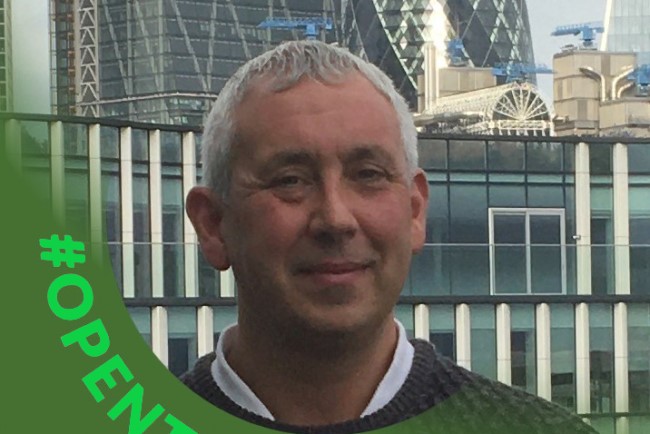Jon Wedger: The Whistleblower Exposing Child Abuse and Police Corruption

Jon Wedger is a former Scotland Yard detective who has gained significant recognition for his efforts to expose child abuse, police corruption, and cover-ups within the UK law enforcement system. His claims have sparked support and controversy, leading to widespread discussions about institutional transparency and accountability. This article delves into who Jon Wedger is, his work as a whistleblower, and the challenges he has faced in his journey to expose these critical issues.
Who is Jon Wedger?
Jon Wedger served as a detective within the Metropolitan Police for over 25 years, focusing on child protection and vice. Throughout his career, Wedger claimed to have uncovered several instances of institutional negligence and deliberate cover-ups, particularly in cases involving child prostitution and trafficking. His claims allege that senior police officers actively suppressed investigations into these crimes, prioritizing the protection of high-profile individuals and the reputation of the police force over justice for victims.
Wedger’s role as a whistleblower has been both applauded and criticized. Supporters see him as a courageous figure fighting against a system that silences those seeking the truth. On the other hand, detractors question the validity of his claims and the evidence supporting them. Regardless, Wedger’s determination to raise awareness about these issues has made him a prominent figure in the movement to protect whistleblowers and expose child abuse.
The Whistleblower’s Claims
Jon Wedger’s whistleblowing journey began during his work in child protection. He claims that while investigating cases of child prostitution, he uncovered a disturbing pattern: many of the cases were being deliberately ignored or covered up by senior officers. According to Wedger, his superiors instructed him to halt his investigations, warning him of the personal and professional repercussions if he continued to pursue these cases.
In particular, Wedger alleges that influential individuals within law enforcement and government were complicit in covering up the sexual exploitation of children. He claims that attempts to bring these cases to light were met with threats, intimidation, and career sabotage. Wedger has recounted how he was forced into early retirement and subjected to harassment for refusing to stay silent about the cover-ups.
Public Speaking and Advocacy
Since stepping away from the police force, Jon Wedger has become an outspoken advocate for child abuse survivors and whistleblowers. He frequently shares his story in interviews, public speeches, and documentaries, drawing attention to the issue of institutional corruption and the abuse of power. Wedger has also worked closely with charities and organizations that support victims of child exploitation, helping to raise funds and awareness for their cause.
Wedger’s message has resonated with many who believe that the police and other institutions often prioritize their reputation over justice. His speeches and interviews highlight the need for greater transparency and accountability within law enforcement and stronger protections for whistleblowers who risk their careers and personal safety to expose wrongdoing.
Controversies and Criticisms
Despite his advocacy efforts, Jon Wedger’s claims have not been without controversy. Some critics argue that his allegations lack concrete evidence and that his whistleblowing activities are more about gaining public attention than effecting real change. These critics point to the absence of legal action against the individuals or institutions Wenger has accused, questioning the validity of his statements.
Moreover, some believe Wedger’s association with specific conspiracy theories has undermined his credibility. For example, his interviews with individuals involved in fringe movements and alternative media platforms have led to accusations that he is promoting unsubstantiated claims. These criticisms have fueled debates about whether Wedger is a genuine whistleblower or a figurehead for a movement driven by conspiracy theories.
Impact on Public Discourse
Regardless of the controversies surrounding Jon Wedger, his work has had a profound impact on public discourse about child abuse and institutional corruption. His whistleblowing has brought attention to the issue of child trafficking and exploitation, sparking conversations about the need for systemic reform in how law enforcement handles such cases. Many supporters view Wedger as a symbol of resistance against a corrupt system, applauding his bravery in speaking out against powerful institutions.
Wedger’s story also highlights whistleblowers’ challenges when trying to expose wrongdoing. His experiences of harassment, threats, and career sabotage serve as a stark reminder of the risks involved in going against the grain of institutional power. For many, Jon Wedger’s story is not just about child abuse and police corruption but also about the broader issue of protecting those who dare to speak out.
Supporting Whistleblowers and Child Abuse Victims
One of Jon Wedger’s primary goals has been to raise awareness about the lack of support for whistleblowers within law enforcement and other institutions. He advocates for stronger legal protections for those who expose corruption and abuse, arguing that whistleblowers play a vital role in maintaining transparency and accountability.
In addition to his work on whistleblower protection, Wedger has been involved in several initiatives to support victims of child abuse. He has worked with charities and organizations dedicated to helping survivors of exploitation, raising funds, and organizing events to promote their cause. Through these efforts, Wedger continues to push for a system that prioritizes the protection of vulnerable individuals over the interests of powerful institutions.
The Role of Social Media and Public Platforms
In the age of digital media, Jon Wedger has used platforms like YouTube, Twitter, and alternative media outlets to spread his message. His online presence has allowed him to reach a global audience, many of whom share his concerns about child abuse and institutional corruption. Wedger’s use of social media has also helped him bypass traditional media channels, which he believes have often been complicit in covering up abuse cases.
However, this approach has also exposed Wedger to further criticism, as some accuse him of using sensationalist tactics to gain attention. His involvement in documentaries and interviews on platforms known for promoting controversial content has led to further scrutiny of his motives and the accuracy of his claims.
The Legacy of Jon Wedger’s Whistleblowing
Jon Wedger’s story is far from over. As he continues to advocate for child abuse victims and whistleblowers, his legacy remains a topic of debate. For his supporters, Wedger is a hero who has risked everything to expose the truth about institutional corruption and child exploitation. He is a controversial figure for his critics whose claims have yet to be substantiated by concrete evidence.
What is clear, however, is that Jon Wedger’s whistleblowing has brought attention to important issues that have long been ignored. His efforts have sparked conversations about the need for systemic reform, greater accountability, and better protection for whistleblowers. Whether or not Wedger’s claims are ultimately proven, his story serves as a powerful reminder of the challenges faced by those who dare to speak out against corruption.
Conclusion
Jon Wedger’s journey as a whistleblower has been fraught with challenges. Still, his determination to expose child abuse and police corruption has made him a significant figure in the fight for justice. His advocacy work, public speaking, and collaborations with charities have raised awareness about the systemic issues within law enforcement and the need for stronger protections for vulnerable individuals. As debates about his credibility continue, Jon Wedger’s story remains a critical part of the ongoing conversation about whistleblowing, child abuse, and institutional corruption.



